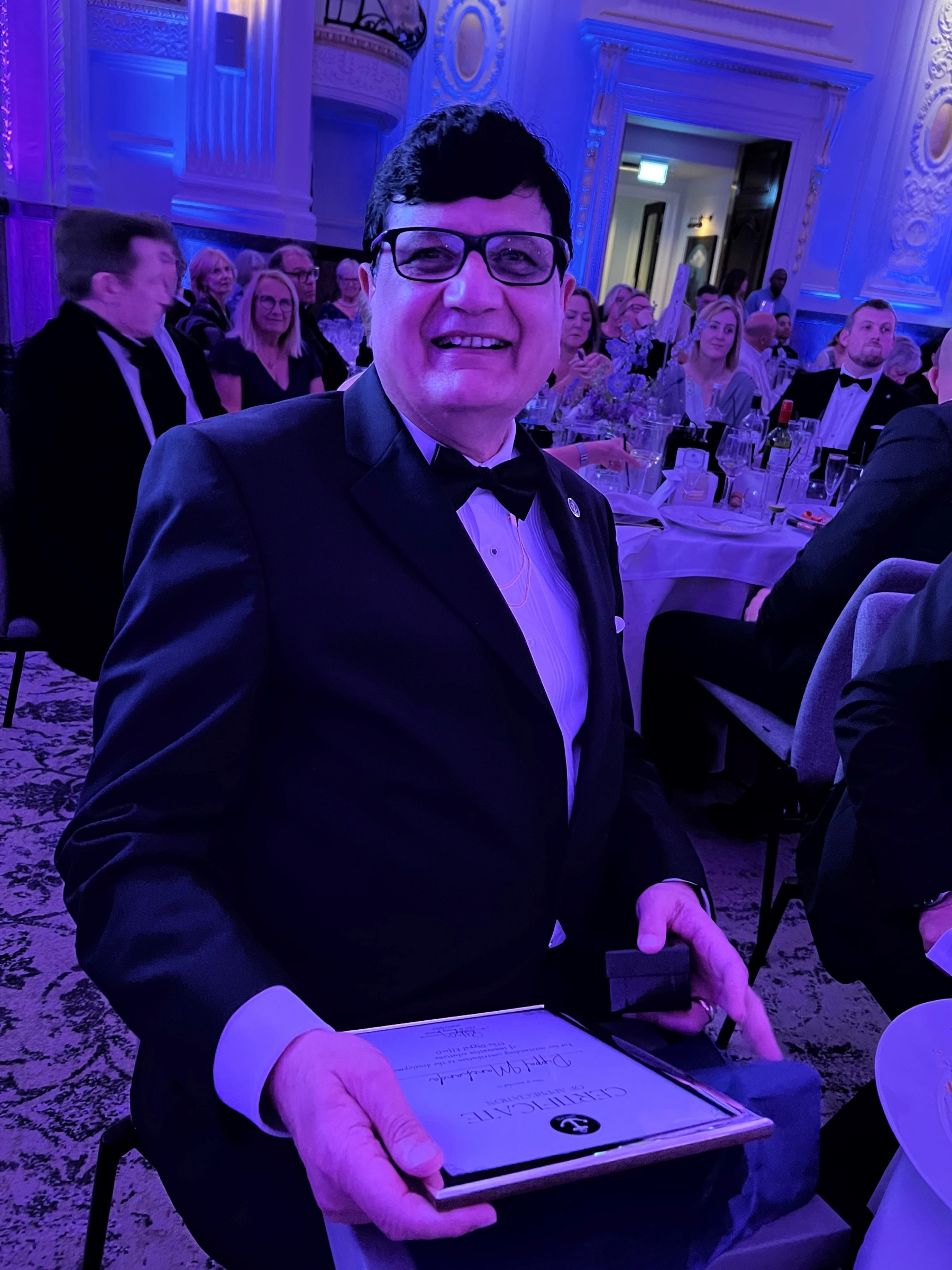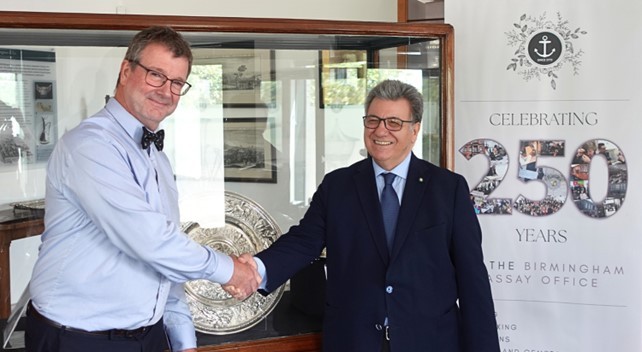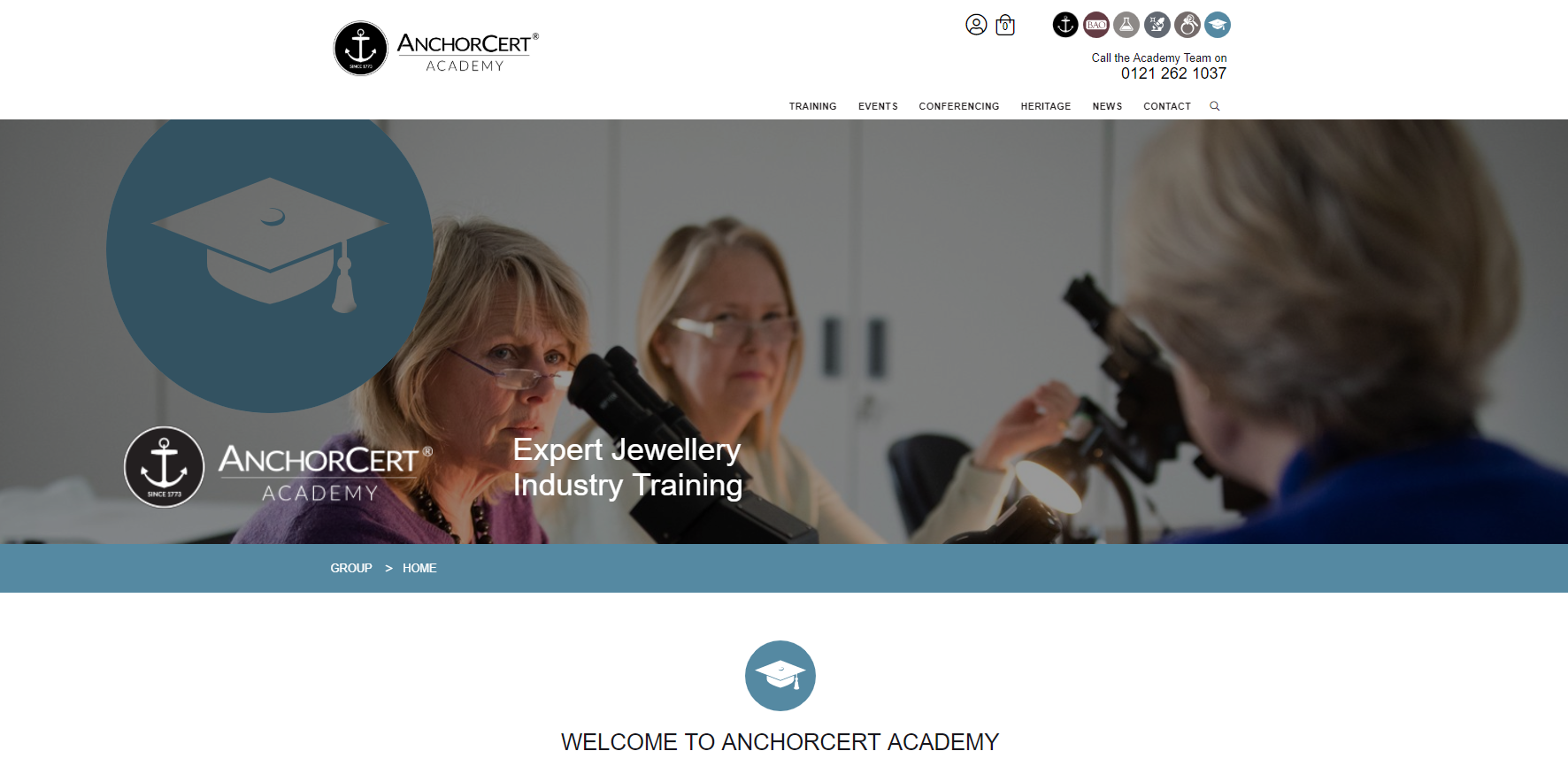
 Michael Allchin CEO and Assay Master - The Birmingham Assay Office
1. What was your plan for carrying out the RJC self Assessment?
Our RJC certification has an unusually wide scope, capturing not only our hallmarking activities but also the metal analysis carried out by The Laboratory and the gemstone testing done in our AnchorCert Gemmological Laboratory. The Birmingham Assay Office is already certificated to ISO9001:2008 and The Laboratory and AnchorCert are accredited to UKAS 17025. The first step to self assessment was therefore for our Quality Manger, Ian Bayley, to determine how much common ground there was between these Quality Management Systems and the requirements of the Responsible Jewellery Council certification, and to identify where additional work would be required.
2. Who in your organization was involved in the process?
Once Ian had begun the process, the entire Senior Management team was involved in putting together the additional documents that were required and cascading information throughout the workforce. The Birmingham Assay Office has 150 employees, including some at âoff siteâ locations within the distribution centres of retailers, importers and manufacturers. All staff were included in the process via a series of presentations explaining the Assay Officeâs commitment to RJC and the importance of social, ethical, environmental and humanitarian principles to the future of our industry. There were also some new documents such as the Anti Bribery policy procedures to be accepted by all staff.
[caption id="" align="alignnone" width="241" caption="Ian Bayley Quality Manager - The Birmingham Assay Office"]
Michael Allchin CEO and Assay Master - The Birmingham Assay Office
1. What was your plan for carrying out the RJC self Assessment?
Our RJC certification has an unusually wide scope, capturing not only our hallmarking activities but also the metal analysis carried out by The Laboratory and the gemstone testing done in our AnchorCert Gemmological Laboratory. The Birmingham Assay Office is already certificated to ISO9001:2008 and The Laboratory and AnchorCert are accredited to UKAS 17025. The first step to self assessment was therefore for our Quality Manger, Ian Bayley, to determine how much common ground there was between these Quality Management Systems and the requirements of the Responsible Jewellery Council certification, and to identify where additional work would be required.
2. Who in your organization was involved in the process?
Once Ian had begun the process, the entire Senior Management team was involved in putting together the additional documents that were required and cascading information throughout the workforce. The Birmingham Assay Office has 150 employees, including some at âoff siteâ locations within the distribution centres of retailers, importers and manufacturers. All staff were included in the process via a series of presentations explaining the Assay Officeâs commitment to RJC and the importance of social, ethical, environmental and humanitarian principles to the future of our industry. There were also some new documents such as the Anti Bribery policy procedures to be accepted by all staff.
[caption id="" align="alignnone" width="241" caption="Ian Bayley Quality Manager - The Birmingham Assay Office"] [/caption]
3. What were some of the key challenges?
The Birmingham Assay Office was founded in 1773 by Act of Parliament to carry out its statutory duty of assaying (testing) metals and applying the legally required UK hallmarks. Integrity, honesty and transparency are vital to its continued existence and are therefore an inherent part of the culture. Many employees have more than 25 years service and several are from families with a long history of working at the Assay Office. Most of the responsible practices required by the RJC are therefore a long established norm, embedded in the culture of mutual trust, pride and commitment at the Assay Office. However, they are not necessarily formally documented as would be the case in a much more recently established company. The main challenge was to deliver documentary evidence to prove that some of the required practices and principles were in place, although their actual application was never in doubt.
4. Has implementing the RJC Certification system highlighted areas for improvement in your business?
The self assessment and audits revealed a few areas where improvements could be made. For example new legal requirements imposed on recently appointed staff with regard to proving their right to work in the UK had not been retrospectively applied to long standing members of staff. Â Also, while The Assay Office takes Health and Safety very seriously, attention is inevitably focused on high risk areas where dangerous chemicals and high temperatures are commonplace. The assessment revealed some of the more general Health and Safety measures such as ladder safety to be less well documented. These areas have all been sharpened up, with clear policies in place for the benefit of employees, customers and the business itself.
[/caption]
3. What were some of the key challenges?
The Birmingham Assay Office was founded in 1773 by Act of Parliament to carry out its statutory duty of assaying (testing) metals and applying the legally required UK hallmarks. Integrity, honesty and transparency are vital to its continued existence and are therefore an inherent part of the culture. Many employees have more than 25 years service and several are from families with a long history of working at the Assay Office. Most of the responsible practices required by the RJC are therefore a long established norm, embedded in the culture of mutual trust, pride and commitment at the Assay Office. However, they are not necessarily formally documented as would be the case in a much more recently established company. The main challenge was to deliver documentary evidence to prove that some of the required practices and principles were in place, although their actual application was never in doubt.
4. Has implementing the RJC Certification system highlighted areas for improvement in your business?
The self assessment and audits revealed a few areas where improvements could be made. For example new legal requirements imposed on recently appointed staff with regard to proving their right to work in the UK had not been retrospectively applied to long standing members of staff. Â Also, while The Assay Office takes Health and Safety very seriously, attention is inevitably focused on high risk areas where dangerous chemicals and high temperatures are commonplace. The assessment revealed some of the more general Health and Safety measures such as ladder safety to be less well documented. These areas have all been sharpened up, with clear policies in place for the benefit of employees, customers and the business itself.
 5. What are the main benefits for your business in implementing the RJC Certification system?
The Mission Statement of Birmingham Assay Office clearly states its purpose as being âto champion quality standards in the wider jewellery and precious metals and gemstones industries, in order to protect the public and the good reputation of the trade.â We strongly believe that social, humanitarian, ethical and environmental standards in our industry need to be, and can be, improved and are keen to support the work of the RJC. We recognize that, like many other initiatives, this is a long hard struggle which may not deliver a perfect solution, but doing nothing is simply not an option. We have supported the RJC since its inception and were unofficial ambassadors and advisors for it long before we were members. I welcomed the opportunity to be elected as a Director of the RJC, in order to make a proper contribution. Our status as a certified member indicates that we not only support the standards but have truly bought into them.
6. What advice do you have for other members at this stage?
Our support for the RJC has been public for several years and âThe Great Debateâ event, which we have staged in cooperation with Reed Exhibitions at International Jewellery London for the last five years, has provided RJC with an opportunity to speak direct to the UK trade. In turn we have already advised several of our big customers as to the benefits of RJC to the industry as a whole and I am pleased to say they are now also certified members. Our advice would always be to participate and make a contribution. Achieving certification is not as daunting as people might think. It will definitely benefit everyoneâs business by making them review it through different eyes, as well adding credibility to their brand principles.
7. Would you encourage others to complete RJC Certification?
Yes. Definitely. The RJC will only succeed in delivering improvements if it has the wholehearted support of the supply chain. There is still a long way to go, it is important that everyone helps in whatever way they can.
More information on http://www.theassayoffice.co.uk/
5. What are the main benefits for your business in implementing the RJC Certification system?
The Mission Statement of Birmingham Assay Office clearly states its purpose as being âto champion quality standards in the wider jewellery and precious metals and gemstones industries, in order to protect the public and the good reputation of the trade.â We strongly believe that social, humanitarian, ethical and environmental standards in our industry need to be, and can be, improved and are keen to support the work of the RJC. We recognize that, like many other initiatives, this is a long hard struggle which may not deliver a perfect solution, but doing nothing is simply not an option. We have supported the RJC since its inception and were unofficial ambassadors and advisors for it long before we were members. I welcomed the opportunity to be elected as a Director of the RJC, in order to make a proper contribution. Our status as a certified member indicates that we not only support the standards but have truly bought into them.
6. What advice do you have for other members at this stage?
Our support for the RJC has been public for several years and âThe Great Debateâ event, which we have staged in cooperation with Reed Exhibitions at International Jewellery London for the last five years, has provided RJC with an opportunity to speak direct to the UK trade. In turn we have already advised several of our big customers as to the benefits of RJC to the industry as a whole and I am pleased to say they are now also certified members. Our advice would always be to participate and make a contribution. Achieving certification is not as daunting as people might think. It will definitely benefit everyoneâs business by making them review it through different eyes, as well adding credibility to their brand principles.
7. Would you encourage others to complete RJC Certification?
Yes. Definitely. The RJC will only succeed in delivering improvements if it has the wholehearted support of the supply chain. There is still a long way to go, it is important that everyone helps in whatever way they can.
More information on http://www.theassayoffice.co.uk/


Your item has been added to the basket
You need to create an account, or login before you can add this item to your basket.







